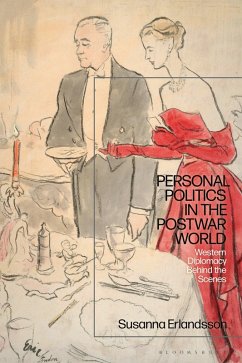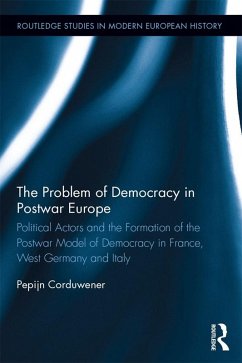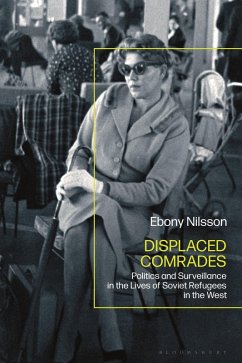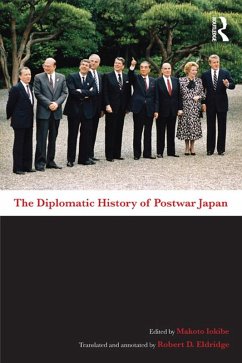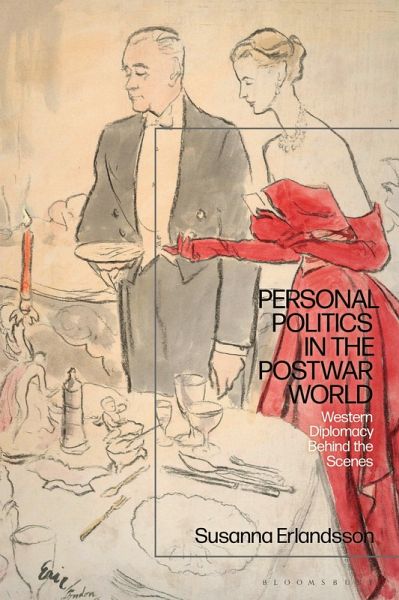
Personal Politics in the Postwar World (eBook, PDF)
Western Diplomacy Behind the Scenes
Versandkostenfrei!
Sofort per Download lieferbar
23,95 €
inkl. MwSt.
Weitere Ausgaben:

PAYBACK Punkte
12 °P sammeln!
Unravelling the mechanisms of daily diplomacy in the mid-20th century, this book follows one Dutch diplomatic couple, the van Kleffens, on their postings from the 1930s to the 1950s to offer a new perspective on how non-officials and personal politics shaped the postwar world. Combining private and public source materials, Erlandsson foregrounds the political culture of diplomacy and highlights events and people which have been left off the official record. The book integrates the detailed study of behind-the-scenes diplomatic practice into the larger narrative of traditional diplomatic histor...
Unravelling the mechanisms of daily diplomacy in the mid-20th century, this book follows one Dutch diplomatic couple, the van Kleffens, on their postings from the 1930s to the 1950s to offer a new perspective on how non-officials and personal politics shaped the postwar world. Combining private and public source materials, Erlandsson foregrounds the political culture of diplomacy and highlights events and people which have been left off the official record. The book integrates the detailed study of behind-the-scenes diplomatic practice into the larger narrative of traditional diplomatic history, connecting social practices with political outcomes. Exploring how women's tea drinking was used to achieve post-war foreign policy and how Rosa, a Guatemalan cook, contributed to the international standing of the Netherlands, it offers a more inclusive history by recognising the diplomatic work done by actors who were not diplomats. In doing so it demonstrates the ways in which diplomacy was class-bound, gendered and racialized, and proves that historicizing gender and cultural norms is crucial to understanding political and international history.




